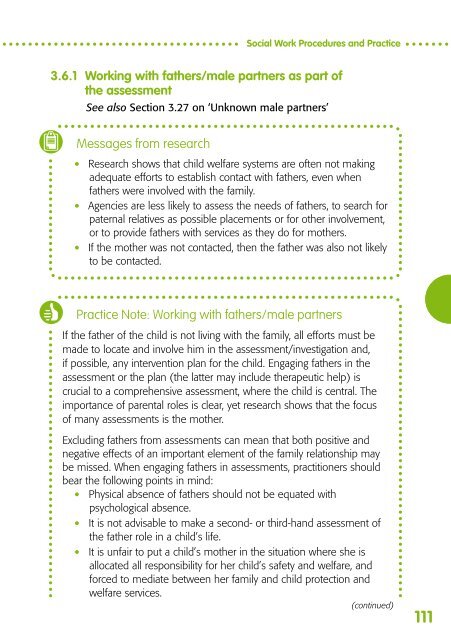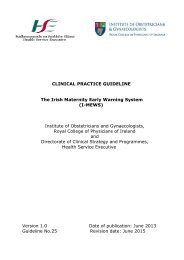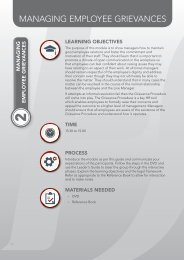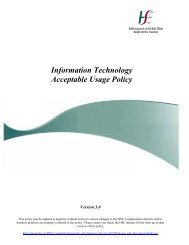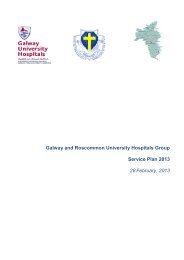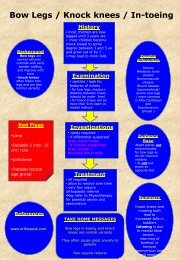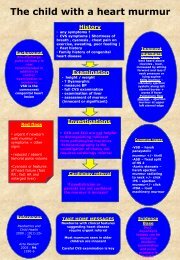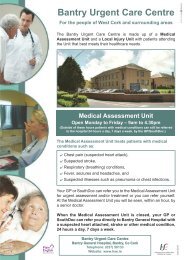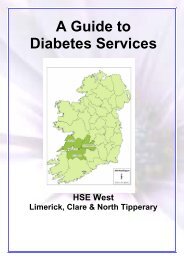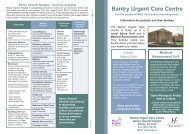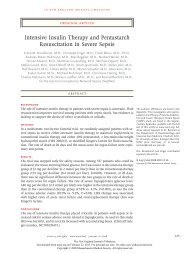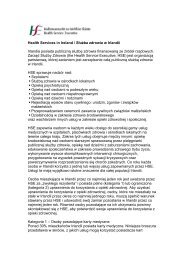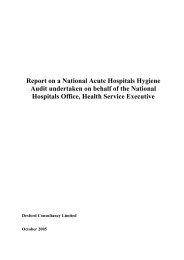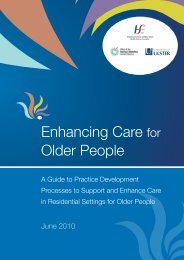Child Protection and Welfare Practice Handbook - Health Service ...
Child Protection and Welfare Practice Handbook - Health Service ...
Child Protection and Welfare Practice Handbook - Health Service ...
You also want an ePaper? Increase the reach of your titles
YUMPU automatically turns print PDFs into web optimized ePapers that Google loves.
Social Work Procedures <strong>and</strong> <strong>Practice</strong><br />
3.6.1 Working with fathers/male partners as part of<br />
the assessment<br />
See also Section 3.27 on ‘Unknown male partners’<br />
Messages from research<br />
• Research shows that child welfare systems are often not making<br />
adequate efforts to establish contact with fathers, even when<br />
fathers were involved with the family.<br />
Agencies are less likely to assess the needs of fathers, to search for<br />
• paternal relatives as possible placements or for other involvement,<br />
or to provide fathers with services as they do for mothers.<br />
If the mother was not contacted, then the father was also not likely<br />
• to be contacted.<br />
<strong>Practice</strong> Note: Working with fathers/male partners<br />
If the father of the child is not living with the family, all efforts must be<br />
made to locate <strong>and</strong> involve him in the assessment/investigation <strong>and</strong>,<br />
if possible, any intervention plan for the child. Engaging fathers in the<br />
assessment or the plan (the latter may include therapeutic help) is<br />
crucial to a comprehensive assessment, where the child is central. The<br />
importance of parental roles is clear, yet research shows that the focus<br />
of many assessments is the mother.<br />
Excluding fathers from assessments can mean that both positive <strong>and</strong><br />
negative effects of an important element of the family relationship may<br />
be missed. When engaging fathers in assessments, practitioners should<br />
bear the following points in mind:<br />
• Physical<br />
absence of fathers should not be equated with<br />
psychological absence.<br />
• It is not advisable to make a second- or third-h<strong>and</strong> assessment of<br />
the father role in a child’s life.<br />
• It is unfair to put a child’s mother in the situation where she is<br />
allocated all responsibility for her child’s safety <strong>and</strong> welfare, <strong>and</strong><br />
forced to mediate between her family <strong>and</strong> child protection <strong>and</strong><br />
welfare services.<br />
(continued)<br />
111


